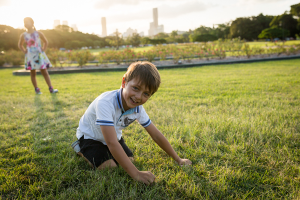 Every child is unique. Being sensitive to your child means that you will be able to notice when he needs help and assist him appropriately. Here are some common signs that your child may not be coping as well as usual:
Every child is unique. Being sensitive to your child means that you will be able to notice when he needs help and assist him appropriately. Here are some common signs that your child may not be coping as well as usual:
- Changes in their behaviour – perhaps your child has become a little more defiant, or she takes longer to get ready in the morning. She may seem constantly tired and grumpy. Or she may have become more rambunctious and hyperactive. If your child’s behaviour is different from her ‘normal’ behaviour then it may be a sign she needs help.
- Changes in social behaviour – Children who suddenly wish to spend more time alone and don’t seem to want to spend time with friends or family may be showing signs that they are struggling. Social withdrawal and keeping to himself for long periods may be a warning sign.
- Problems at school or academically – Children who are struggling emotionally most often begin to show difficulties at school. They may find it hard to concentrate and finish tasks, become disruptive during class or simply struggle to keep up with the work. Talk to your child’s teacher for feedback and take note if she is starting to lag behind academically or getting into trouble often at school.
- Loss of excitement – children are naturally full of energy and easily pleased. If your child looks as though he is no longer interested in the things that used to make him happy, or he is no longer excitable then it may be a warning sign that he is struggling emotionally.
- Changes in appetite or sleep habits. Some children lose interest in food, or become overly fussy. Others start to over-eat or become quite focused on food. Changes in sleep patterns can also indicate issues in a child’s life – children may want to sleep more than usual, or find it difficult to get to sleep or stay asleep. If these patterns are unusual for your child, look into what may be contributing to the changes.
While we have broad based signs that children may be having difficulties, it is important for parents to assess their children sensitively and with regards to their unique natures. If you notice your child is not coping as they usually do, and you would like assistance in supporting them, it may be helpful to speak with one of our psychologists.


 We can’t always predict what is going to happen on a daily basis and life will throw challenges our way, and at our kids too! So helping our children to understand that, and experience some flexibility rather than being stuck in rigidity, teaches them that it is a positive skill to be able to adapt to changes and go with the flow and fosters resilience.
We can’t always predict what is going to happen on a daily basis and life will throw challenges our way, and at our kids too! So helping our children to understand that, and experience some flexibility rather than being stuck in rigidity, teaches them that it is a positive skill to be able to adapt to changes and go with the flow and fosters resilience. Encourage your child to pick at least five people then assign each person to a finger or thumb on one hand. This can help your child remember who those support people are, e.g. my teacher is my pointer finger.
Encourage your child to pick at least five people then assign each person to a finger or thumb on one hand. This can help your child remember who those support people are, e.g. my teacher is my pointer finger. Encourage your child to be a friend in order to make and keep friends. Being involved in social, sporting, cultural, school, or spiritual events and groups can also promote a child’s sense of belonging, self worth, and belief that they are surrounded by people who will support them when in need.
Encourage your child to be a friend in order to make and keep friends. Being involved in social, sporting, cultural, school, or spiritual events and groups can also promote a child’s sense of belonging, self worth, and belief that they are surrounded by people who will support them when in need.
